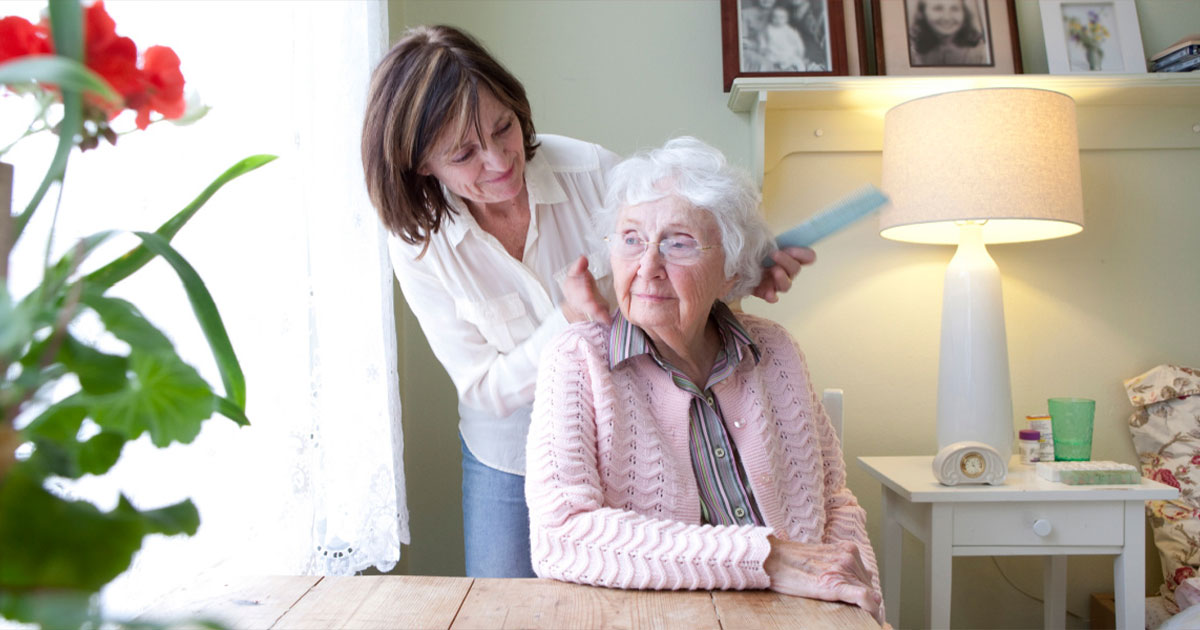If you’re a caregiver for a parent, child, spouse or another adult with a disease or disability, you’re not alone. More than 1.7 million Michiganders provide full- or part-time unpaid care for family members with dementia, stroke, cancer, disabilities, mental illness and other special needs.
THE CHALLENGE OF CAREGIVING
You may stay busy providing support your loved one needs to be independent such as completing household chores, shopping for groceries, preparing meals, managing finances, running errands, and providing transportation and/or providing support for daily life such as feeding, bathing, dressing and toileting.
In short, you may be providing the role of taxi driver, housekeeper, cook, accountant, groundskeeper and psychologist—all rolled into one.
A TOUGH JOB?
Being a caregiver can be a very positive experience that makes your life more fulfilling. Your time can make a difference in the care recipient’s health and happiness. Many family caregivers derive a sense of purpose and satisfaction knowing they are making a difference in this way.
In addition to fulfillment, you may have feelings of anger, resentment, frustration, stress, exhaustion, failure, isolation or sadness. Family caregiving can also put a real strain on your own health.
Isolation. The most frequently reported challenge for caregivers is social isolation and loneliness due to the change from their previous routines, lifestyles and social activities to focus on their family member.
Health Risks and Illness. Studies show that caregivers are at increased risk for chronic diseases because they may neglect their own personal health needs to provide care for others, the negative effects of isolation and not getting enough sleep.
Caregivers who are not taking time to manage their own health and are experiencing higher stress are more likely to have headaches, back problems, high blood pressure, high cholesterol, weight gain and depression.
TIPS FOR COPING
You can take better care of others when you take care of yourself, but you may find that’s the hardest thing to do. It’s important to:
Get support. Consider joining a support group for caregivers. You’ll find validation, encouragement, friendship and help with problem-solving. Many organizations provide support groups online and in person for caregivers facing different situations, including:
- Pine Rest’s Family & Friends of Aging Adults
- Alzheimer’s Association
- Caregiver Resource Network
- National Alliance on Mental Illness
Take a break. Put someone else in charge temporarily so you can walk away for a while. This could be in-home respite care, an adult daycare center or a short-term nursing home.
Take care of yourself. Get enough sleep and find time for some physical activity every day. Also focus on eating healthy foods and drinking enough water.
Stay in balance. Treat yourself to some alone time each day for prayer, meditation or other spiritual practices that give you inner strength.
Accept help. Think about specific ways others can pitch in, whether it’s bringing a meal, bathing, running errands or driving to an appointment. Then, don’t be shy about asking others for assistance.
See your doctor. Stay current with screenings and immunizations. Be sure to tell your doctor that you’re a caregiver and share any concerns or symptoms you have.
Pat yourself on the back. Give yourself credit for doing the very best you can in a difficult situation.
CHALLENGING CIRCUMSTANCES PUT YOU AT HIGHER RISK FOR DEPRESSION
A variety of issues may put an extra strain on your situation. For example, caring for someone with dementia, a brain injury or at the end-of-life can be especially stressful.
Perhaps your relationship with the care recipient has always been difficult. You hoped this would be a time of healing, but now you only feel regret and discouragement.
Research shows 40-70% of caregivers under strain show signs of depression that shouldn’t be ignored, including:
- Sleep problems.
- Sadness.
- Forgetfulness.
- Pain that won’t go away.
- Fatigue.
- Lack of interest in normal activities.
If you are feeling overwhelmed by stress, depression or difficult emotions, reach out to a licensed clinician at Pine Rest who can help you adopt new strategies for staying physically, spiritually and mentally healthy.
Learn more by visiting Pine Rest Christian Mental Health Services or calling 866.852.4001.
Celebrated every November, National Family Caregivers Month is a time to recognize and honor family caregivers across the country. It offers an opportunity to raise awareness of caregiving issues, educate communities, and increase support for caregivers.
Written by Kris Brown, Marketing Manager, Pine Rest Christian Mental Health Services.
Courtesy of Pine Rest Christian Mental Health Services.
Photo Courtesy of Shestock.




